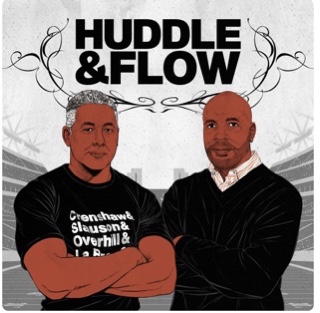Protests against racism came to a ferocious boil this year after the murders of George Floyd, Breonna Taylor and Ahmaud Arbery at the hands of law enforcement or others who had no right to put their hands on anyone let alone innocent citizens. In years past we’d hear only one side of similar stories. Today there is video of most everything that happens on and off of our streets.
In the wake of so much excruciating tragedy, athletes joined community protests and met with leaders to demand change. For the most part, they were applauded for taking a stand. The symbol of this movement, however, remains unemployed in his chosen sport.

Former San Francisco 49ers quarterback Colin Kaepernick sparked one of the most debated protests in American history. He did it honestly, transparently, peacefully and without malice to the country or military. Like he did then, he continues to help educate and empower people in underserved, mostly Black and Brown communities, to expand and improve health care, legal services and job opportunities. If you see these actions on the surface you might say, “what a generous guy.” His work is beyond-worthy of NFL’s Walter Payton Man of the Year award. Well, Kaepernick hasn’t played in an NFL game in nearly four years, and it’s not because he is less qualified than other quarterbacks that have been signed since. Even so, what he did – what he’s doing – helps communities throughout the country.
Freedom needed a wake-up call
“Every current and former member of the military with whom I have spoken about this, shared with me that they enlisted to protect and defend our freedoms, including our freedom to express our views, even when they don’t agree with those views,” former NFL executive and co-author of You Negotiate Like a Girl: Reflections of a Career in the National Football League Amy Trask, said. “This of course reminds me of the powerful phrase from Friends of Voltaire: “I disapprove of what you say, but I will defend to the death your right to say it.”
It’s not a secret that Black people are treated differently by law enforcement
What Kaepernick brought forth from the shadows may have seemed like a horrible dream to many, but to others, it was nothing new. African- Americans have long been marginalized in American communities, even raising their kids differently than their white counterparts. Young black people are taught to act with extreme caution and obedience during traffic stops. They are more than three times as likely to be killed after an encounter with police than white people. This type of racial profiling and inequitable treatment is unacceptable in a country that claims that all “men” are created equal. Kaepernick pulled the security blanket off all of it.

“At the risk of stating the obvious, the biggest positive is that he [Kaepernick] helped awaken a fight that was latent in many of us – a fight for right over wrong, principle over profit,” said NFL reporter, Jim Trotter, who with Steve Wyche, has tackled similar topics on their podcast, Huddle & Flow. “I’m not sure people would be standing as tall today if he had not taken a knee in 2016.”
Kaepernick became the symbol of the modern protest movement
While WNBA players have long been vocal in their communities, they along with their NBA counterparts and other athletes today use their platforms more freely than they ever did. It’s important, because people of all ages look to them for leadership and communal insight.
“It helped open the door for other athletes.” Mike Freeman, author Football’s Fearless Activists: How Colin Kaepernick, Eric Reid, Kenny Stills and Fellow Athletes Stood Up to the NFL and President Trump, said. “To be clear, there were WNBA players and others who were protesting before Kaepernick, but he became the symbol. When other players saw him, it emboldened them, and in some ways, gave them the permission structure to protest as well.”
Freeman said that Kaepernick forced the NFL, albeit reluctantly, to see its players as individuals. His actions shone a light on if the league truly listened to, or cared about them.
From all the good to come from Kaepernick’s work and purpose, however, he remains on the outside of the NFL.
“Colin held firm on the courage of his convictions and he did so at a cost to himself,” Trask said. “He is a shining example of the power and importance of holding firm in our beliefs, even when not popular to do so, and of doing what we believe is right, even if at a personal cost.”
Disclaimer: Gail Sideman has been working with Mike Freeman to publicize his book, Football’s Fearless Activists. With the exception of quotes in this post, thoughts are her own.
©Gail Sideman; gpublicity.com; 2020
###